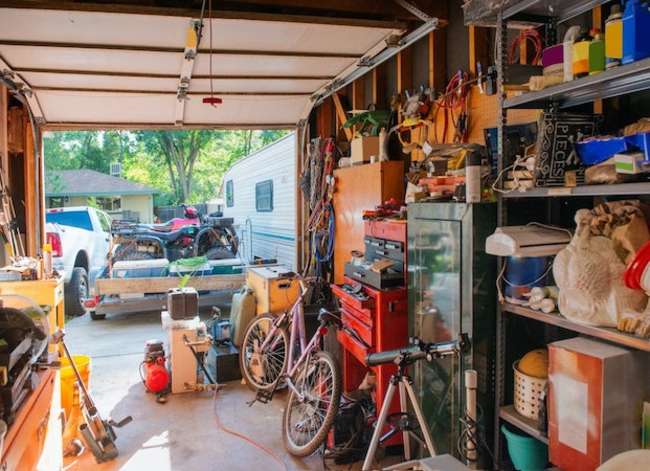

We may earn revenue from the products available on this page and participate in affiliate programs. Learn More ›
Home Advice You Can Trust
Tips, tricks & ideas for a better home and yard, delivered to your inbox daily.
Keep This Gear Out of the Garage
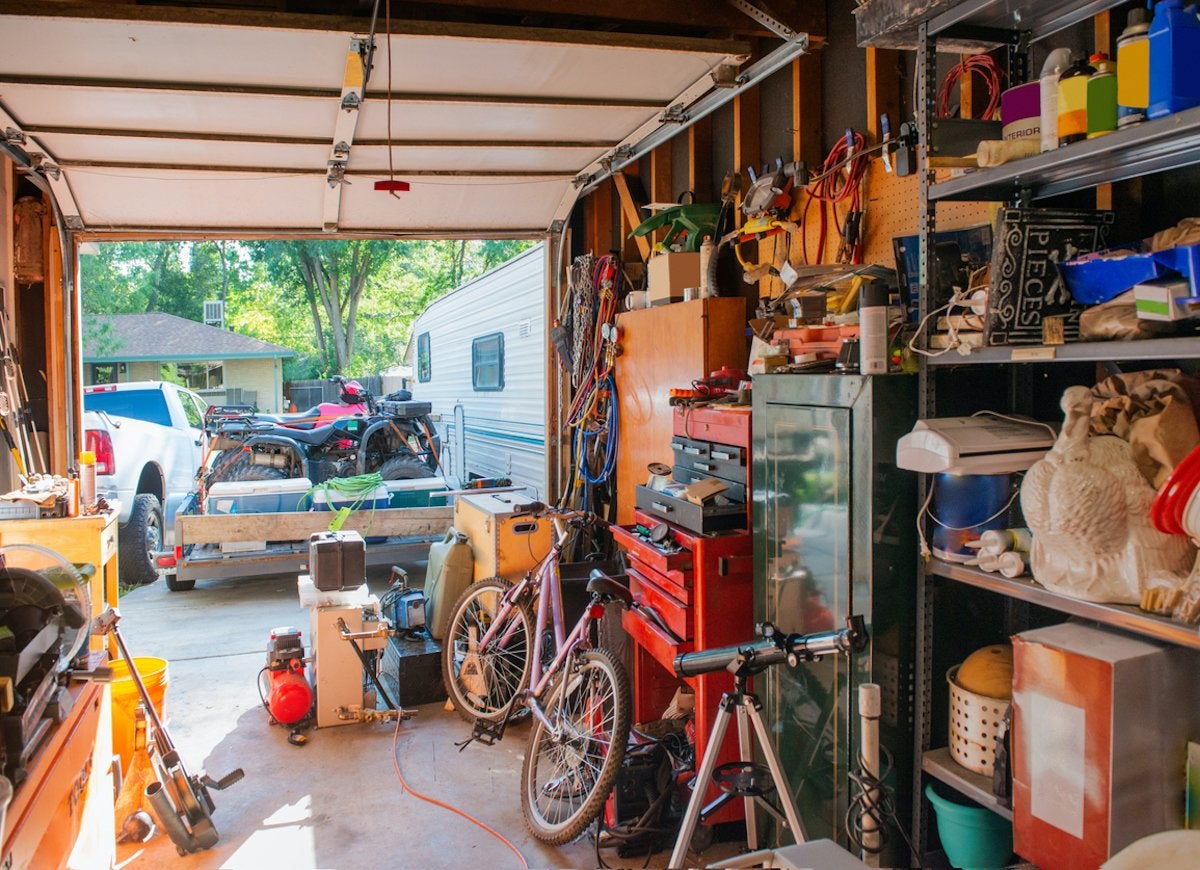
When space in your home is at a premium and you need a place to stash sports equipment or rarely used household items, what’s the first place that comes to mind? The garage, of course! Not so fast. Many precious possessions can be damaged when stored in the garage, while other items could actually pose a risk to your home or family. Read on to find out what items you should never keep in your garage.
Firewood
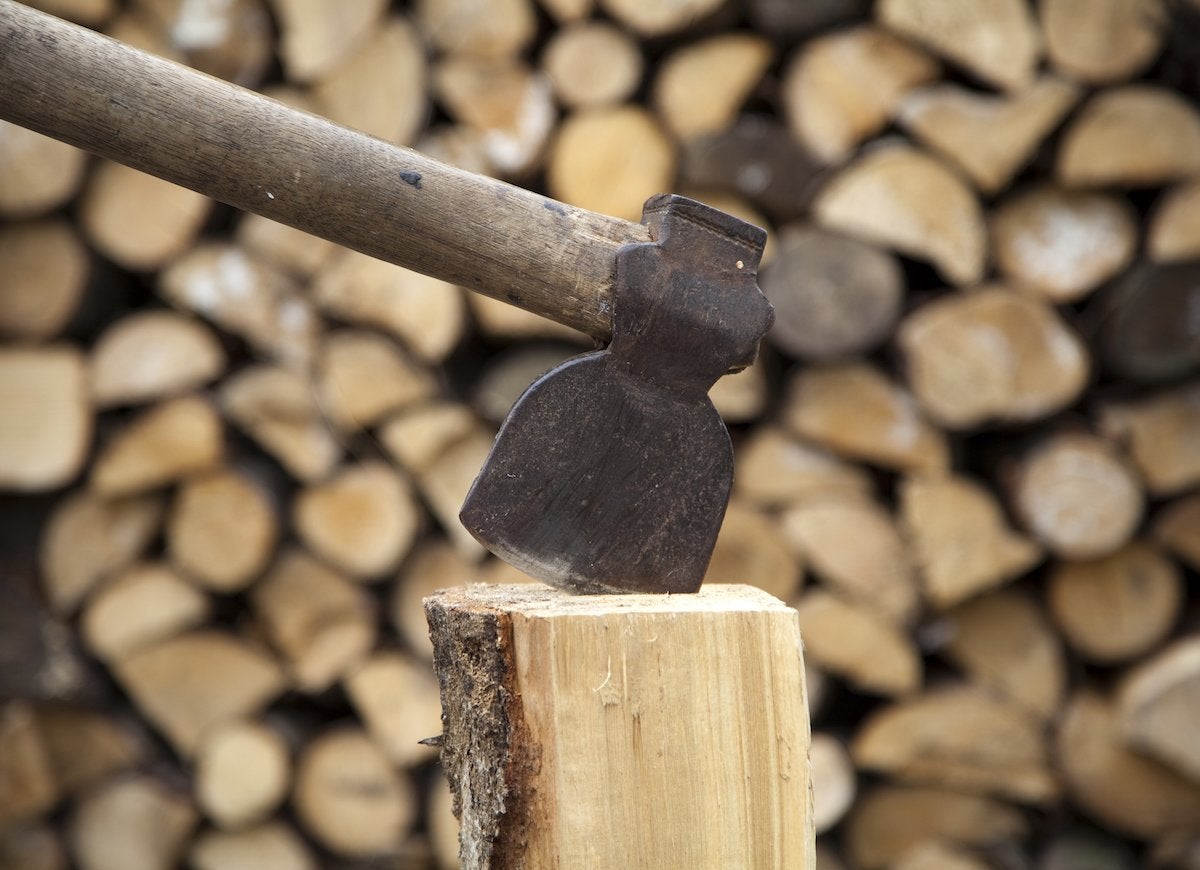
On cold winter nights, those roaring winter fires need fuel. Though it’s tempting to stack your firewood in the garage for quick retrieval, resist the impulse: Along with that cord of wood come pests that can infiltrate your garage and eventually migrate into your home. Your best bet? Stack your firewood on an elevated rack away from your home and cover it with a tarp to keep it dry.
Canned Food
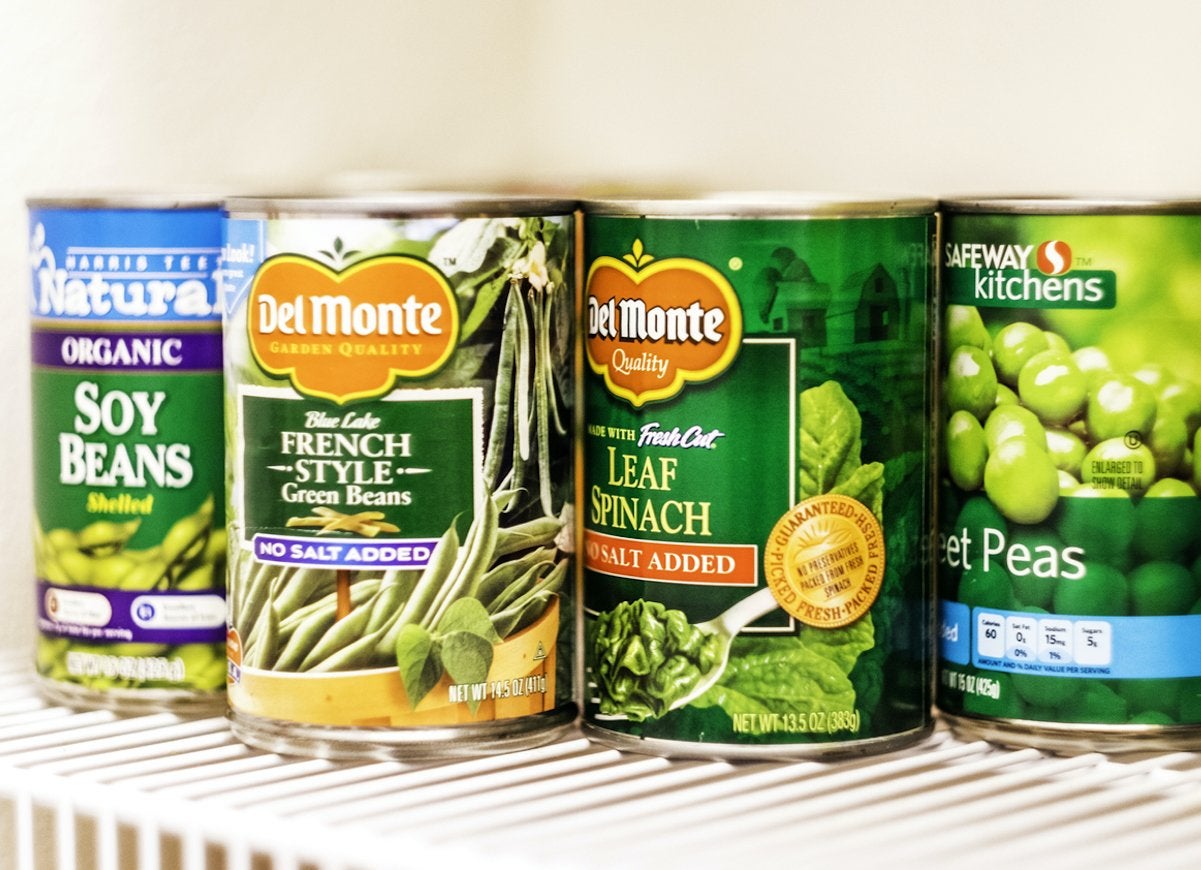
If you’re running out of room in your kitchen cabinets or pantry, don’t risk storing that extra canned food in the garage. The USDA recommends storing canned foods in a cool, dry location, and most garages fail on both counts. A damp garage could cause tin cans to rust, and canned food that is stored in a garage that’s hotter than 85 degrees Fahrenheit runs the risk of spoiling. If you’re fresh out of space for your nonperishables, this might be a good time to reorganize your kitchen shelves.
Propane
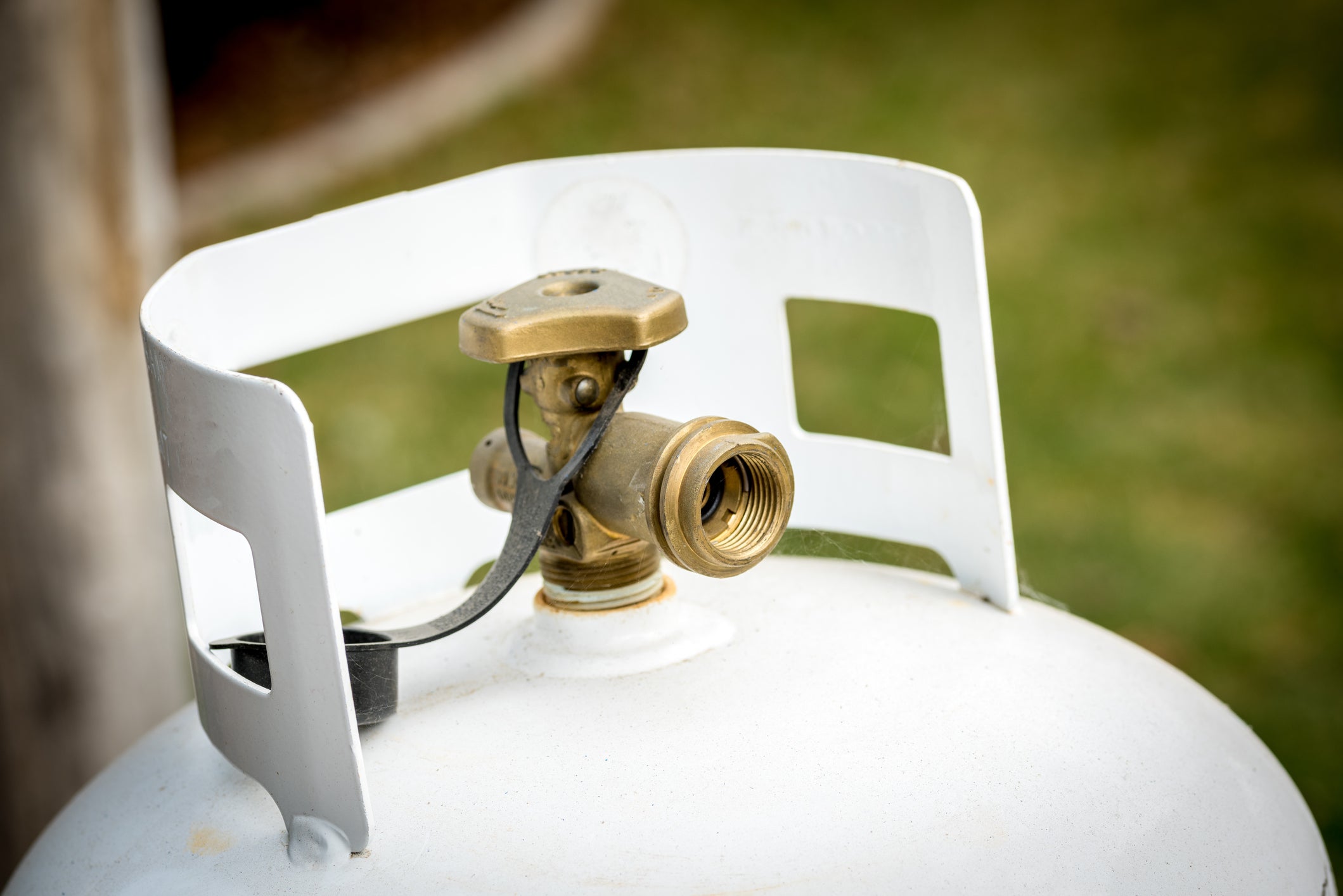
This is a big no-no. If you keep an extra propane tank on hand for your camp stove or grill, always stow it outdoors. Propane tanks are not supposed to be stored in closed areas. If the valve leaks, propane gas can seep into the garage, creating both an asphyxiation risk and a fire hazard. If propane fills the garage, a mere spark or a pilot light can ignite the gas and send your house up in flames.
A Spare Refrigerator
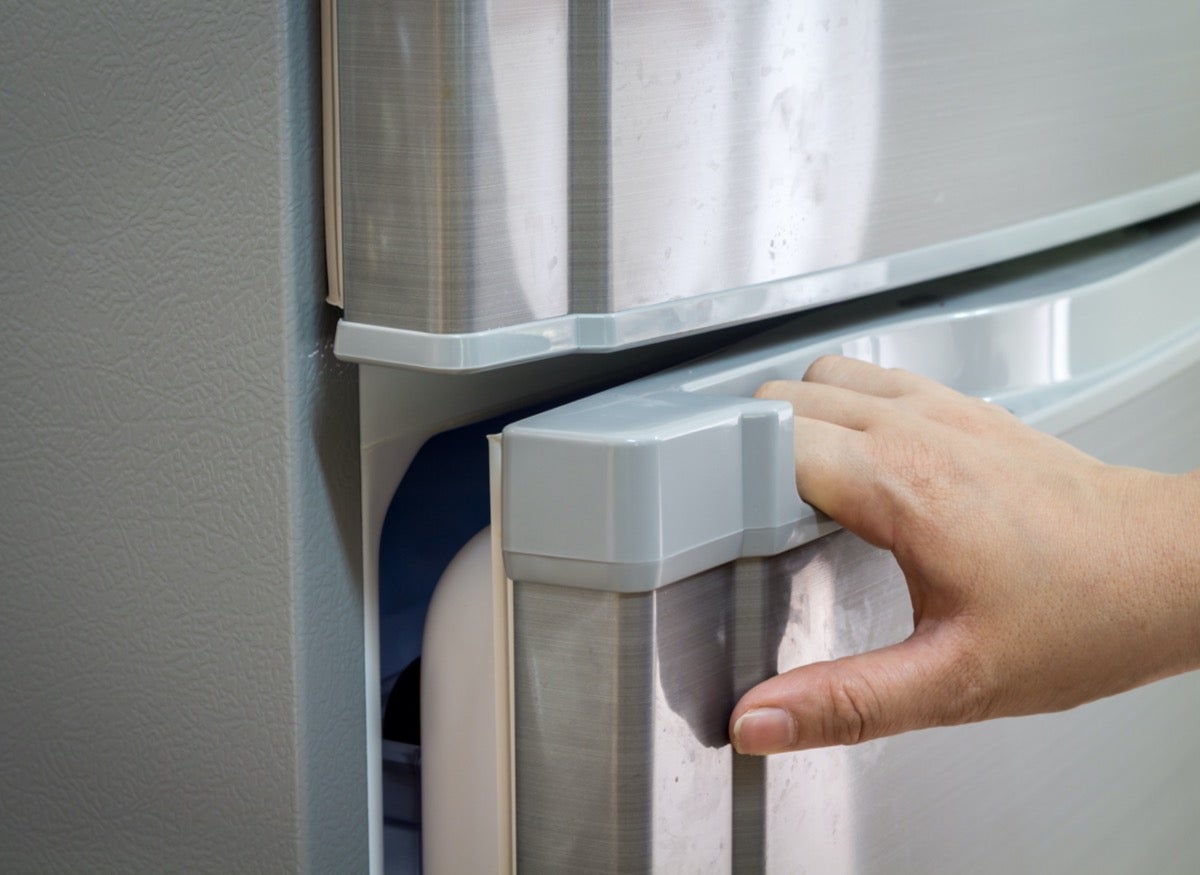
If you’re into conserving energy—and who isn’t?—don’t keep a spare fridge in your garage. Refrigerators function most effectively at temperatures between 65 and 78 degrees Fahrenheit. In summer, a non-climate-controlled garage can reach temperatures higher than 100 degrees, which forces the fridge to work overtime to keep cool—and run up your utility bills in the process. The fridge does no better in the winter, as even its insulated doors cannot keep perishable foods from freezing.
Wooden Furniture
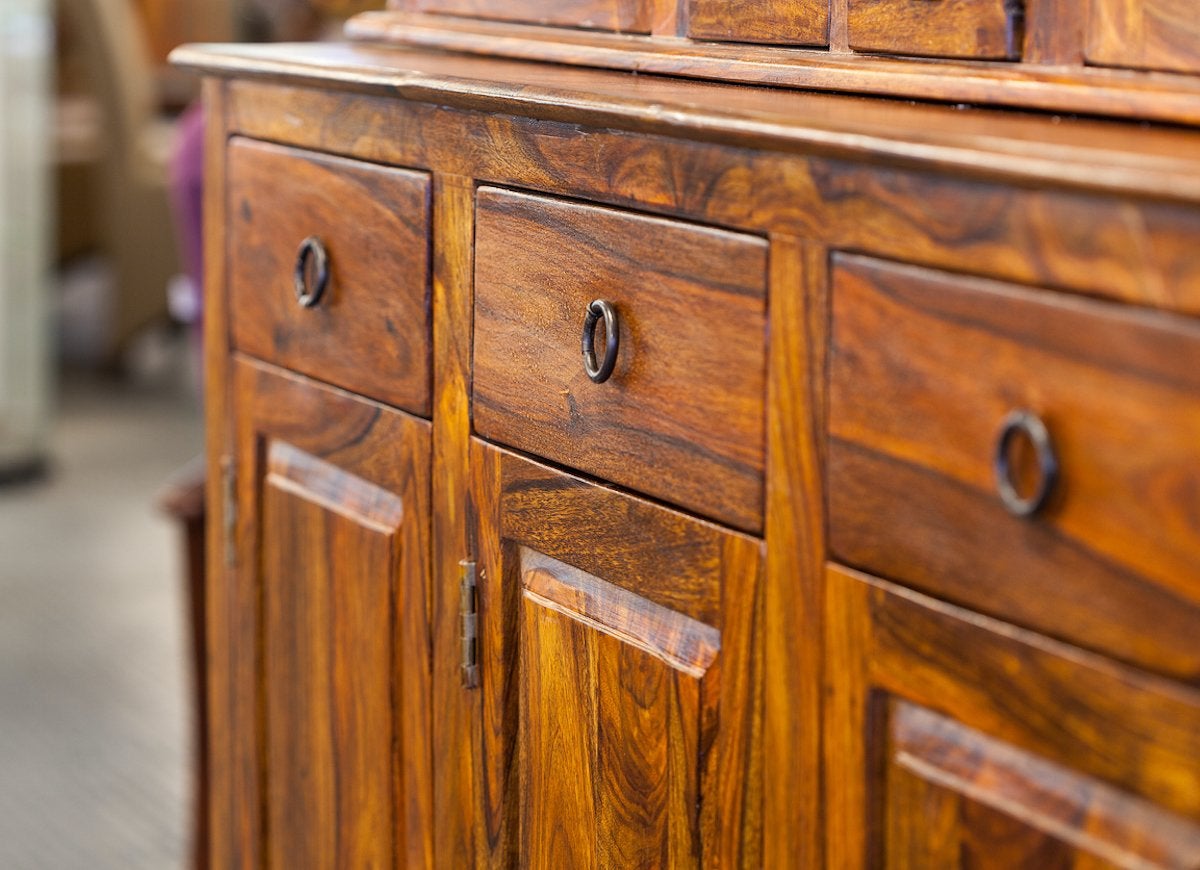
If you want to pass down antique wood furniture to your kids or grandkids, make arrangements to give it to them now rather than storing it in the garage. Temperature and humidity fluctuations wreak havoc on wood, causing its grain to alternately swell and contract. This can result in damage in the form of veneer delamination and warped wood. Just a few short months in a garage can render some wood items completely unusable.
Electronics
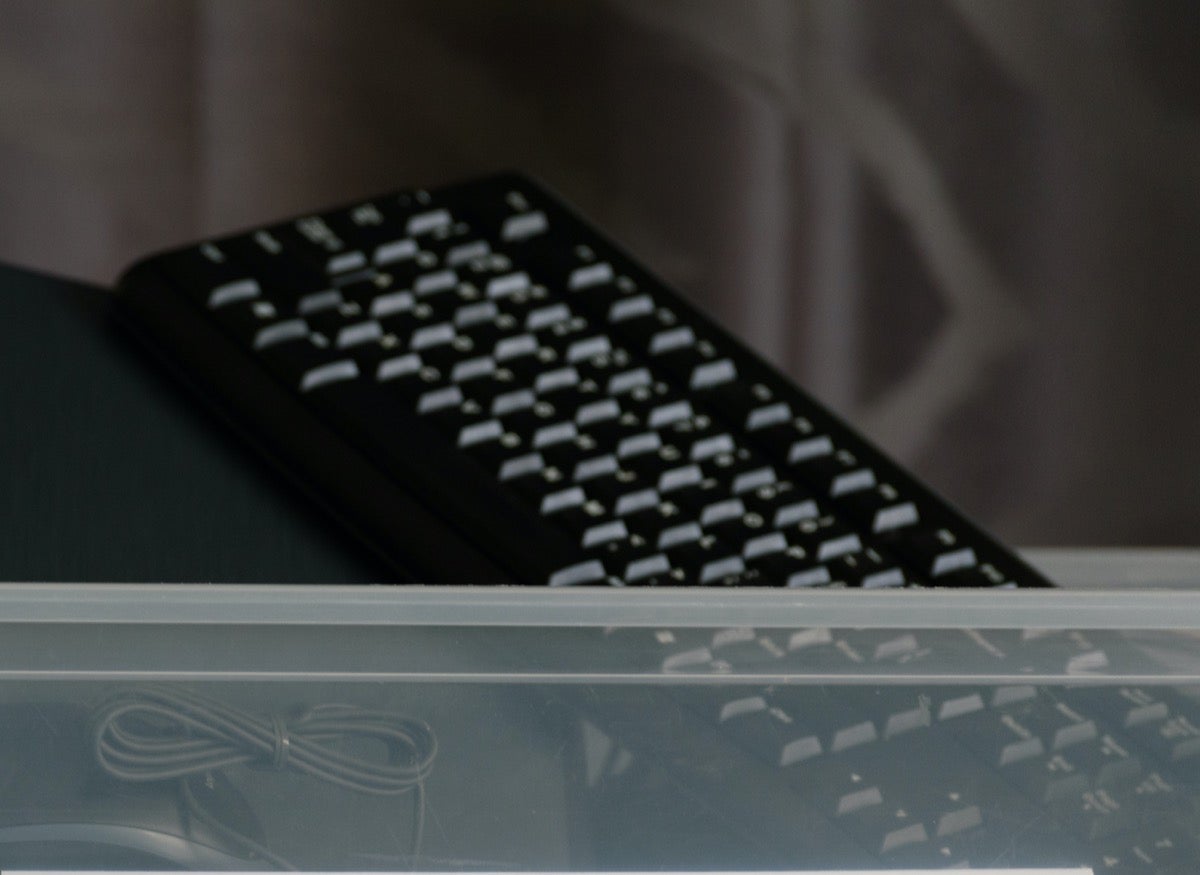
If you don’t want your old gaming console, printer, or PC any longer but it still has some life left in it, consider giving it to a kid in the neighborhood or donating it rather than storing it in the garage. A garage’s high humidity levels spell ruin for electronics, increasing the risk of damage to a device’s internal printed circuit boards. Even if the humidity doesn’t zap your old electronics, they might fall prey to tiny insects, which can wiggle inside and damage components. Keep those gadgets indoors or get rid of them ASAP.
Bedding and Clothing
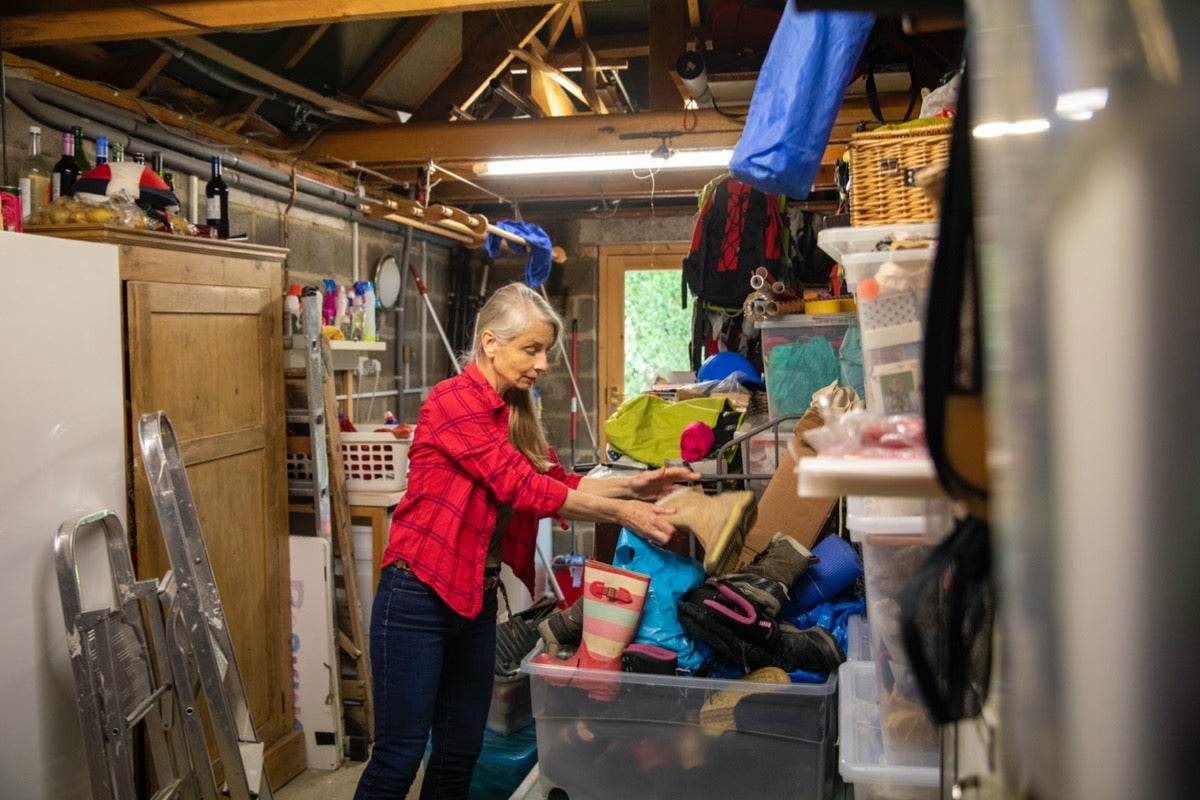
Heat, humidity, and insects are fabric’s natural enemies. This triple threat, all too common in garages, puts clothing and bedding at risk of mold, mildew, and other damage. Whether it’s a box of baby clothing, last summer’s apparel, or your wedding dress, if you want to protect it don’t put it in the garage. This also goes for a spare mattress. Even if it’s tightly wrapped, tiny insects and car fumes can still affect it.
Treasured Photos

The best way to ensure that your treasured photographs will be safe for generations to come is to store them in a cool, dry, and dark place, such as under your bed or at the back of an interior closet. Keeping photos in the garage is an invitation to ruin and can leave you with a mess of faded and stuck-together photos. These are cherished memories—don’t store them next to your car and sport gear.
Paper Products
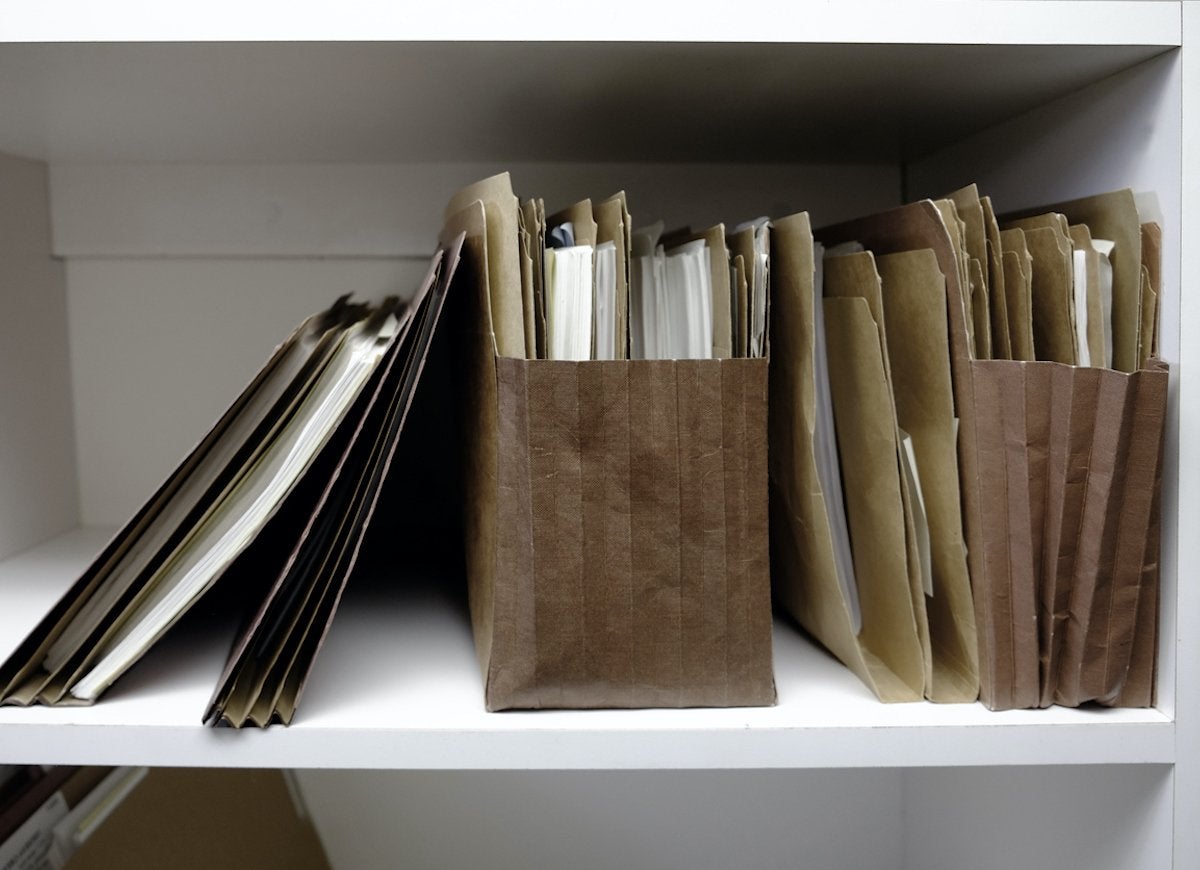
Nothing attracts mice and chewing insects (like termites and silverfish) more than paper products. Whether it’s your important tax documents, comic book collection, or the set of encyclopedias you inherited from your aunt, if you want to keep them, keep them out of the garage. In the event that your books and documents escape paper-munching pests, fluctuating garage temperatures can still cause them to curl and crack.
Paint
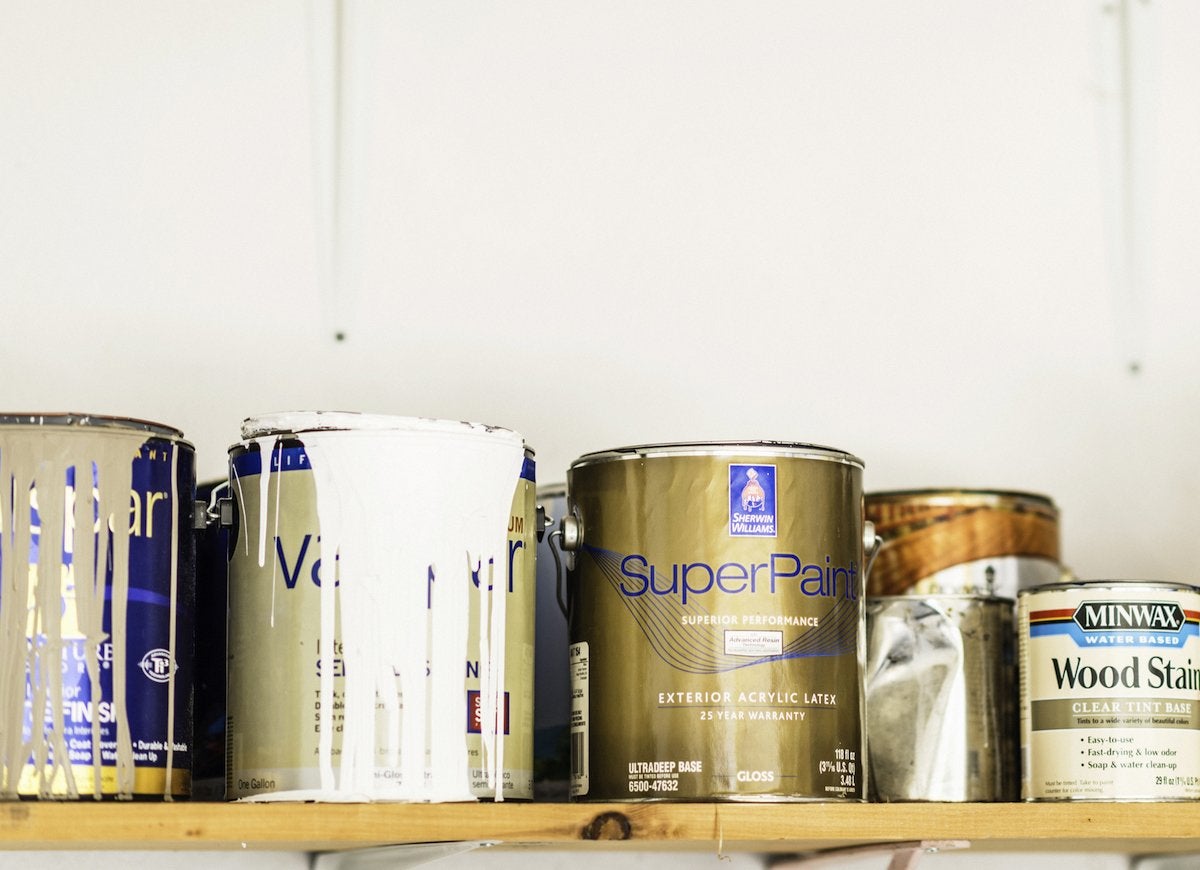
When stored improperly (in an unheated garage, for instance), paint can separate or gel. Even unopened cans are at risk of spoiling in extreme temperatures. If the weather’s temperate and you’re in the process of painting the house, it’s OK to stick a half-full paint can in the garage overnight. If, however, you don’t plan to paint again for a few months, tap the lid tightly in place and stash the can in a basement or utility closet until you need it.
Gasoline
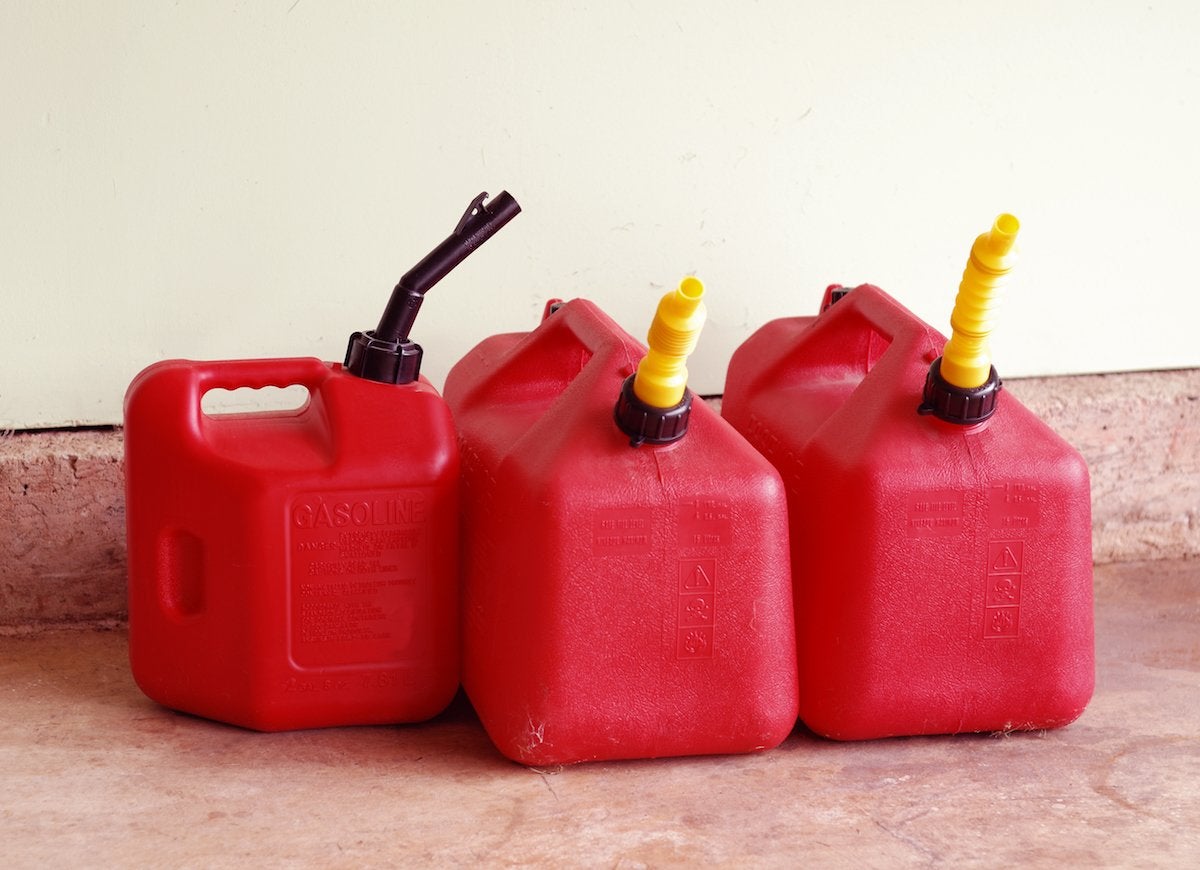
While you can store gasoline in the garage, if you don’t do it properly, you’re putting yourself and your home at risk. Many community fire codes restrict gasoline storage to less than 25 gallons. Use only containers approved for gasoline storage and place them on a piece of plywood, not directly on the concrete floor, to protect them from extreme cold and the resulting risk of condensation. Make sure the containers are out of direct sunlight and out of the reach of children.
Alcohol
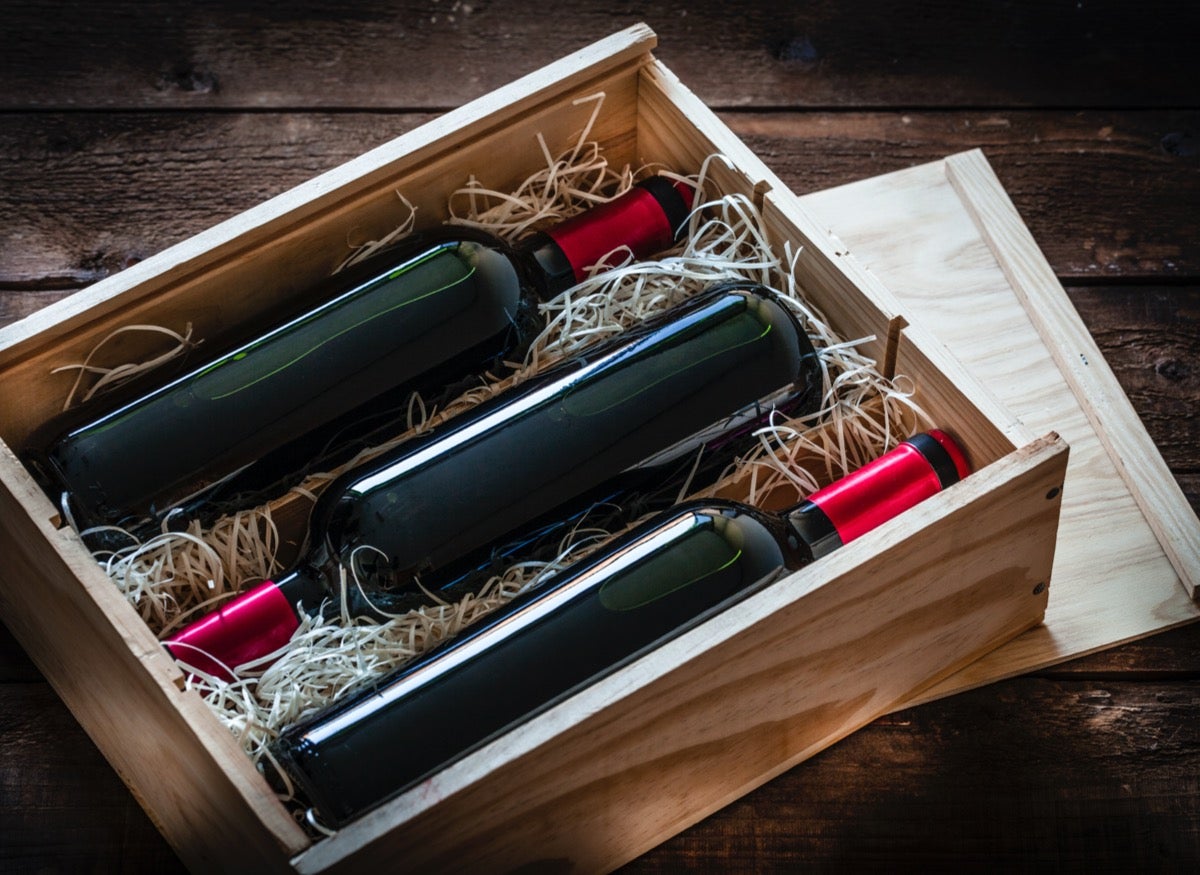
Don’t stash beer, wine, and other alcoholic beverages in the garage. Even sealed bottles can be affected by the intense summer heat of an uninsulated garage, and wine in particular doesn’t do well with radical temperature swings. To keep your tipples tasting fresh, store your wine as well as other potent potables at stable indoor temps.
Pet Food and Pantry Staples

When you need to store 5-pound bags of flour, bulging bags of rice, and family-size boxes of cereal, you can run out of room in the pantry pretty fast. And where are you going to stow that 50-pound bag of dog food! Look for storage space somewhere other than the garage. Food, whether for humans or pets, attracts rodents and insects, and a garage’s extreme temperature swings can cause food to spoil.
Cherished Mementos

Much-loved plush toys, CDs of family photos, vinyl records, and other items of sentimental (or even actual) value should be kept out of the garage. Mice, moisture, heat, cold, and insects can take a toll on your carefully curated keepsakes. Store these mementos indoors in a closet, or in the attic or basement, preferably off the floor and in plastic bins with tight-fitting lids.
Oily Rags
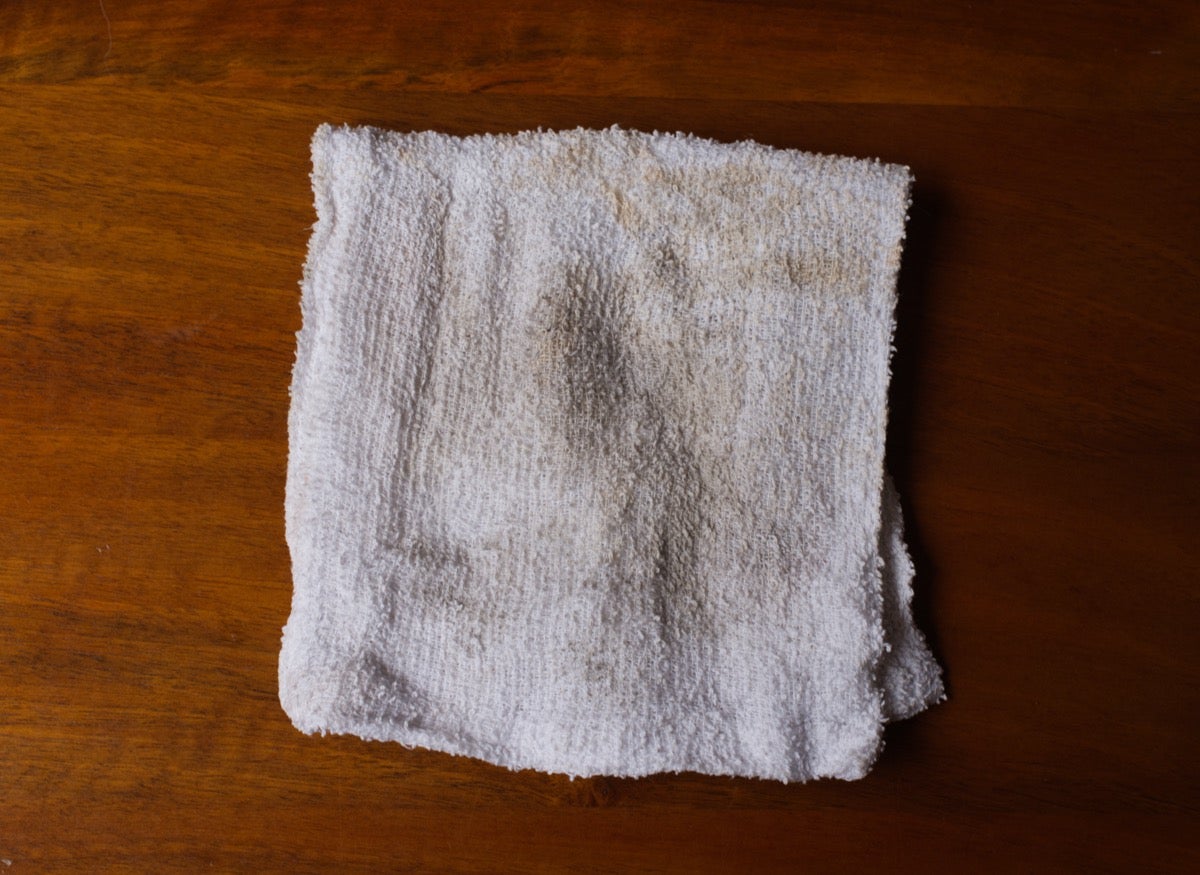
When you finish a project involving an oil-based product like a stain or sealant, never toss the used rags in a corner of your garage—or anywhere else, for that matter. Oily rags are highly combustible, and a single spark can start a fire. Even in the absence of a spark, it’s possible for a pile of oily rags to self-ignite. Instead, dry rags by spreading them out individually on a noncombustible surface. Once dry, place them in an empty metal paint can, fill it with water, replace the lid, and then take the can to your local hazardous waste disposal site.

After Testing 20 Air Purifiers, We Found One That Does Something the Rest Can’t
Same functionality, different package? Not with this Sans air purifier, which offers more advanced filtration and features than most models I’ve tested—without a premium price tag.